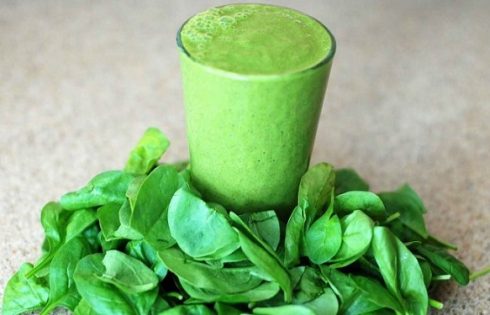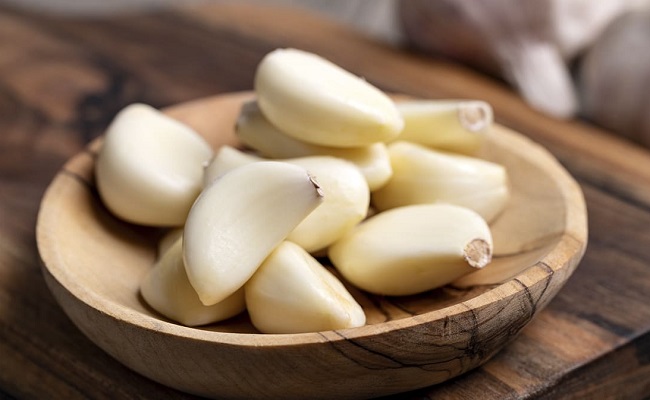Health Benefits Of Spinach, Nutrients, Properties & Usage
What are the health benefits of Spinach? Spinach is a globally known vegetable rich in vitamin A, C, K, folic acid, iron, calcium e.t.c. Spinach belongs to the amaranth family and its origins are said to be in the Middle East though could be found in other parts of the world like Africa, America, Asia, Europe and so on. So, without further ado, let’s learn about the benefits of this green leafy vegetable.
Before we dive into the health benefits of Spinach it will make a huge sense to know what Spinach is.
What Is A Spinach?
Spinach or Spinacia oleracea is a herbaceous plant with edible leaves of the Amaranth family, belonging to the Chenopodioideae subfamily.
It is grown at any time of the year, although it is a typical winter vegetable.

There is a variety of winter spinach and summer spinach, among which are savoy spinach with rough, curly and relatively hard leaf, and spinach with smooth leaves, which are more subtle on the palate because they do not have rough edges.
Other varieties of spinach include kale, flat, and semisalted.
Read Also: 7 Natural Foods That Regulate Blood Sugar Level
Varieties Of Spinach
– Savoy or curly: It is the most popular variety. Due to its firm texture, it is eaten cooked. It is sold in bundles and must be washed very well before cooking.
– Smooth blade: It is also eaten cooked. Its leaves are larger, smoother and more tender than the previous ones. They are sold in bags and without the stems; that’s why they are easier to wash.
– Baby spinach: They are the smallest, sweetest and most tender. They are eaten in salads, and they are sold in bags with their stems, which can be eaten because they are very small.
Nutritional Values Of Spinach
Spinach is one of the richest green leafy vegetables in vitamins and minerals has. For every 100 grams:
- Calories: 23
- Water: 91%
- Proteins: 2.9%
- Carbohydrates: 3.6g (mainly fiber)
- Sugar: 0.4g
- Fiber: 2.2g
- Fats: 0.4 g of Which
- Saturated: 0.06g
- Monounsaturated: 0.01g
- Polyunsaturated: 0.17g
- Omega 3: 0.14g
- Omega 6: 0.03g
- Trans Fat: 0
Health Benefits Of Spinach
1: It Is Very Rich In Fiber
Like many other plants, spinach is also rich in insoluble fiber. Why is this good for your health? Because people with high intakes of insoluble fiber appear to have a much lower risk of developing cerebrovascular and gastrointestinal diseases, as well as diabetes and obesity.
Consuming raw or cooked spinach regulates intestinal transit. Therefore, the consumption of fiber is key to have a good daily digestion.
2: Provides Large Amounts Of Vitamins And Minerals
The nutritional power of spinach has a first and last name: vitamins and minerals. It is an extremely nutrient-dense vegetable. It contains large amounts of carotenoids, vitamin C, vitamin K, folate, iron, and calcium.
It also provides phosphorus, chlorophyll, sulfur, trace elements and enzymes. Its protein intake is 2.8% per 100 grams of spinach. Although they are not very abundant, they are more complete proteins compared to those found in other vegetables.
3: Contains Powerful Antioxidants
In addition to providing large amounts of vitamins and minerals, spinach provides antioxidants related to protection against inflammation and disease.
There are two especially key ones: kaempferol, a flavonoid that has been shown to reduce the risk of cancer, and quercetin, which has been linked to possible protective effects on memory, heart disease and type 2 diabetes.
4: Helps Control Blood Pressure
Spinach is a source of natural nitrates. What are they? Compounds that open blood vessels to improve flow and ease the workload on the heart.
Studies showed that spinach juice (and the addition of other vegetables high in natural nitrates like arugula and beets) tend to regulate blood pressure.
The recommendation: three daily tablespoons of spinach juice help lower blood pressure.
5: Promotes Brain Health
Spinach’s anti-inflammatory effects make it a key food for protecting the brain, particularly from aging.
Research that closely followed 950 older adults for 5 years found that those who ate large amounts of green leafy vegetables had a significantly lower rate of cognitive decline than those who did not.
Studies say that people who ate one or two servings of leafy greens a day had the same cognitive abilities of a person 11 years younger than those who did not eat leafy greens.
6: Protect Eyesight
We already stated that the benefits of spinach are truly amazing. But who would say that it has the power to preserve the health of your eyes?
Lutein and zeaxanthin, two antioxidants found in spinach, reduce the risk of losing visual acuity due to age-related macular degeneration.
Read More: 10 Foods That Are Good For Your Eyesight
7: Help Detoxify Your Body
That’s right: spinach at the bottom of your fridge is perfect to help you detoxify your body. That is why it is so common to use it in detox juices. (We will talk about that below).
If your body says goodbye to toxins, with cleaning and purification processes, your immune system will be much stronger.
8: It Has Large Contributions Of Iron
Although it has been credited with a higher percentage of iron than it actually has for several years, spinach is an excellent source of iron.
It provides 2.71 milligrams of iron per 100 grams. This is greater than the contribution of animal meat! Of course: iron of vegetable origin is absorbed with greater difficulty than that of animal origin. However, the vitamin C in spinach (and other foods such as citrus), favors its assimilation.
9: It Is Useful To Lose Weight
If your nutritional plan is geared towards weight loss, including spinach is a good idea. It is a portion of light food, low in calories and provides satiety.
10: Regulates Cholesterol
In this regard, spinach has two key components: fiber and antioxidants. Its fiber prevents the absorption of cholesterol and bile acids, while its antioxidants reduce the oxidation of LDL cholesterol (called “good”).
At this point in the article, we hope you are already have noted down the benefits listed and also alternatively you can bookmark this site. But this is not all: there are a few more benefits.
Benefits Of Spinach For The Skin
On the one hand, spinach has a large amount of vitamin A, which allows your skin and hair to look healthy and shiny. In addition, the antioxidants and vitamin E available in spinach protect the skin from sun damage and the natural aging process.
Raw Spinach Benefits
The truth is that you can eat raw and cooked spinach. Both ways are super healthy and beneficial.
When you consume raw spinach, you get the most of its vitamins. On the other hand, when you cook them, their concentration of minerals increases and they lose some amount of vitamins.
The key is to alternate the two options!
Read Also: Health Benefits of Moringa: Uses & Properties
Benefits Of Spinach Juice
Spinach is one of the star ingredients in green juices and smoothies. It is a good way, in addition to preparing it in salads, to consume it raw.
In juice or smoothie, spinach becomes a shot detoxifying, energetic and satiating. Try this:
2 bundles of spinach + 1 cucumber + 1 green apple + Half lemon juice + Water. Blend with the blender and enjoy! You can strain it through a cloth bag to remove its fiber or drink it directly like that, in the form of a smoothie.
Now that you know the full health benefits of Spinach we urge you to share this article via the social media buttons displayed below to educate others.






![Best Banks in Florida United States [Top 5]](https://naijaxtreme.com/wp-content/uploads/2022/02/best-banks-in-florida-img_1-min.jpg)
